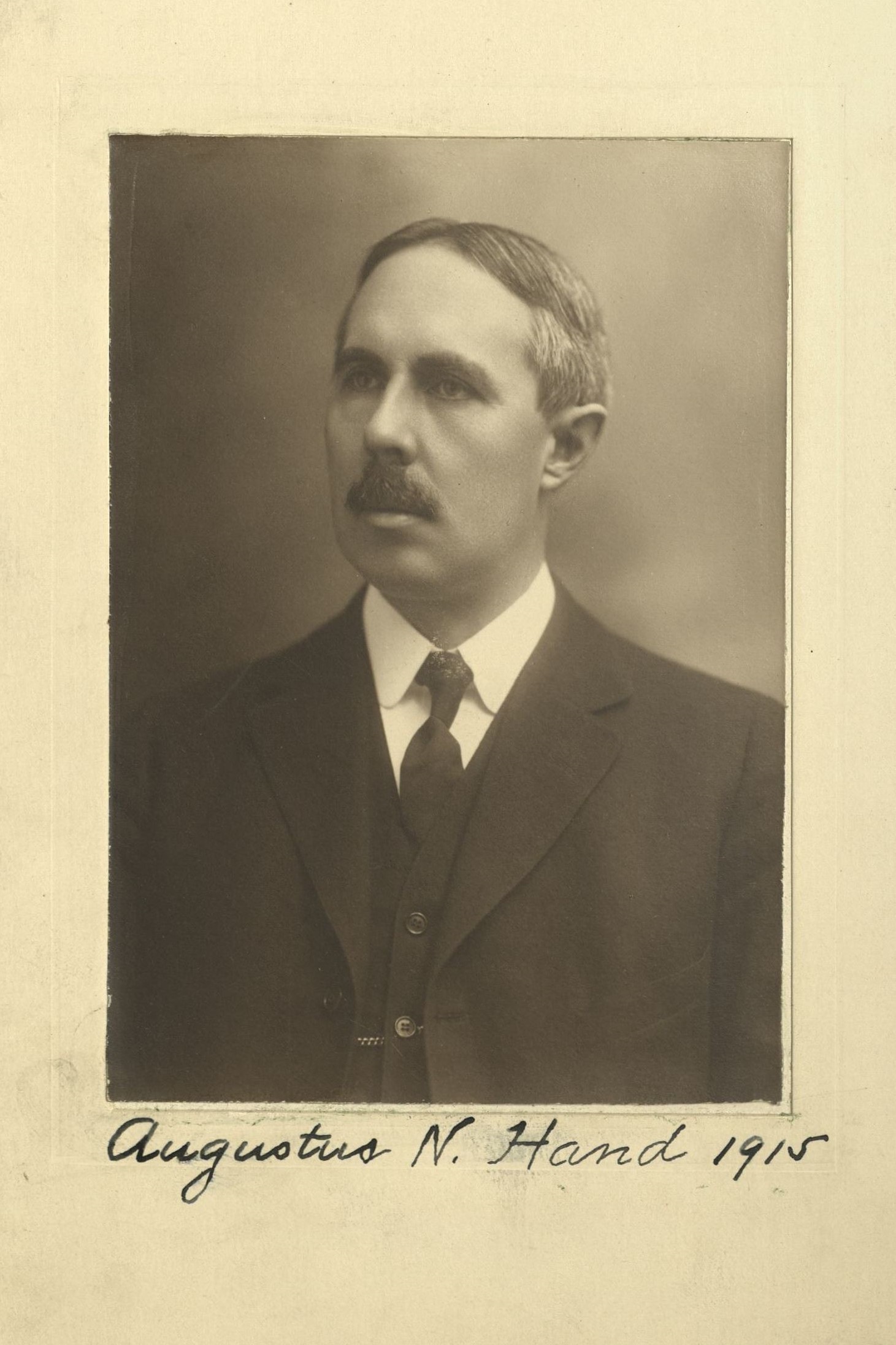Judge, U.S. District Court
Centurion, 1915–1954
Born 26 July 1869 in Elizabethtown, New York
Died 28 October 1954 in Middlebury, Vermont
Buried Riverside Cemetery , Elizabethtown, New York
, Elizabethtown, New York
Proposed by Charles P. Howland and Charles Wisner
Elected 6 November 1915 at age forty-six
Archivist’s Note: Son of Richard L. Hand; cousin of Learned Hand
Century Memorial
Augustus Noble Hand was one of the ablest American judges. He was born in 1869 in Elizabethtown, New York, on the fringe of the Adirondacks. He was ready for college at fourteen; but his father sent him to Exeter for a year, and he then entered Harvard in the Class of 1890. He graduated magna cum laude. His father [Richard L. Hand] and his grandfather were both lawyers, and his grandfather was a judge. After a year in his father’s office, Hand attended the Harvard Law School and graduated in 1894 with honors. He practiced in New York City and became a member of his uncle’s law firm.
In 1914 President Wilson appointed him a Judge of the United States District Court for the Southern District of New York, and in 1927 President Coolidge appointed him a Circuit Judge. Hand was a Democrat, and he humorously remarked that President Coolidge was glad to promote him and put a Republican in his place in the lower court, which alone had any considerable patronage.
Judge Hand was born to be a judge. He was a man of great force, and his opinions were characterized by their clarity, directness, and brevity. On the bench he was courteous and patient, and he never fell within Bacon’s injunction against a much-speaking judge. He administered the routine of the court-room casually, without effort or hesitation, by simple force of character. He had little love of ratiocination. He made up his mind and rarely changed it. He had many of the traits of a country lawyer. His speech was slow and unadorned; his silences were heavy and unhurried. He separated the background of his judgments from the foreground of his opinions so that the latter were free of pedantry or parade of book-learning.
Like Erasmus, Hand was entirely aware that he lived in a revolutionary age, but he had no disposition to lead the rebels. He regarded change as inevitable and to be accepted, and he devoted his efforts to moderating the intolerance of over-sure prophets of the millennium.
On Saturdays Judge Hand would come to the Century for lunch. He was marvellously pleasant company. He would talk about anything in the world. He was a big, heavy man, and it was slightly surprising how far to the left he seemed to be: from his appearance one would have half expected he would be conventional, even stuffy; but he had a lively mind and a liberal point of view, and he not only entertained new ideas with equanimity but he was disconcertingly willing to try them out.
He was a strong and liberal churchman, the Senior Warden of Grace Church.
George W. Martin
1955 Century Association Yearbook

